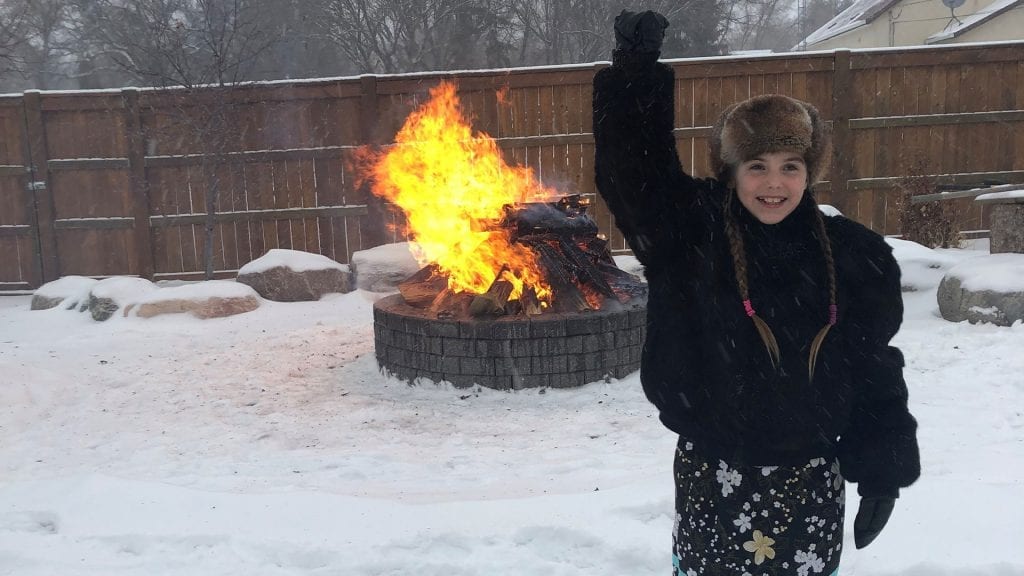
Isabella Kulak shows her pride while wearing a ribbon skirt in her backyard. Photo: APTN file
Canada is marking the first National Ribbon Skirt Day on Wednesday – an event inspired by an Anishinaabe girl who was shamed for wearing one to school several years ago.
Isabella Kulak, a member of the Cote First Nation in Saskatchewan, wore a ribbon skirt to her rural Saskatchewan school in December 2020 when she was 10 years old.
The colourful garment is worn by Indigenous women at cultural events and as a show of pride. When Kulak wore hers as part of a school formal day, her family said that a staff member told her the outfit wasn’t considered formal enough.
The school division later apologized, but her story sparked an online movement of Indigenous women sharing photos of themselves wearing ribbon skirts as a way to honour their identity.
Manitoba Sen. Mary Jane McCallum’s bill to recognize the day every Jan. 4 passed in Parliament late last year.
READ MORE:
Cultural ignorance at heart of skirt shaming in Saskatchewan
“Isabella’s story shone a light on the enduring injustices, racism, and discrimination faced by First Nations, Inuit, and Métis in Canada every day, and on the importance of the role we all have to play in making sure that what happened never happens again to anyone in Canada,” Prime Minister Justin Trudeau said in a statement Wednesday.
Kulak and her family said they want people to wear something that shows they are proud of who they are, whether that is a ribbon skirt or not.
Her mother, Lana, said they planned to attend a celebration on her daughter’s home nation to mark the day.
Other Indigenous leaders have called on Canadians to do the same, including the Southern Chiefs’ Organization in Manitoba.
In a statement Wednesday, Grand Chief Jerry Daniels said while many First Nations people are very familiar with the significance of the ribbon skirt, Kulak’s experience demonstrates there is more learning to do.
READ MORE:
‘It makes me sick’; Parent reacts to criticism of daughter wearing ribbon skirt
“Today we honour young Isabella Kulak for her courage and resolve,” he said. “We lift up all our relations who do what they can to raise awareness of our cultures, along with combating racism and discrimination.”










